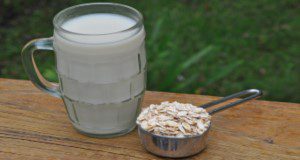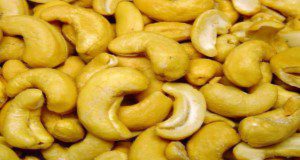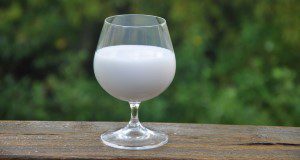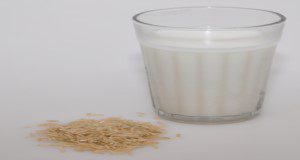Oat milk is one of the more recent dairy alternatives to hit the grocery shelves, and several brands are currently available in the United States. Oat milk is made from the cereal grain oats. This new 3-page publication of the UF/IFAS Food Science and Human Nutrition Department describes how oat milk is made, its ingredients and nutrient profile, and the potential health benefits and risks of consumption. Written by Hannah Cooper, Daniela Rivero-Mendoza, and Wendy J. Dahl.
https://edis.ifas.ufl.edu/fs419
Tag: plant-based
Plant-Based Milks: Cashew
The availability and consumption of plant-based milk alternatives have been on the rise. Sales of nondairy milk alternatives have more than doubled, whereas consumption of traditional cow’s milk has dropped. This increase may be due to plant-based milks being perceived as “natural,” as well as a rise in veganism and avoidance of lactose. The primary plant-based dairy alternatives are almond, soy, coconut, cashew and rice. This new 4-page publication of the UF/IFAS Food Science and Human Nutrition Department discusses the nutritional content, potential health benefits, and potential risks of cashew milk. Written by Jamie Zeldman, Daniela Rivero-Medoza, and Wendy J. Dahl.
https://edis.ifas.ufl.edu/fs413
Plant-Based Milks: Coconut
Plant-based alternatives to cow’s milk have become a rising trend. Factors that may steer consumers toward nondairy milk alternatives include adherence to a vegan diet, lactose intolerance, allergy to cow’s milk, or simply preference. Coconut milk is one of the many varieties of plant-based milk. Whether you are considered switching to or have already begun purchasing a plant-based milk, the purpose of this new 4-page guide is to inform you on the nutrient content of coconut milk and its potential health benefits and risks. Written by Celia Andreo, Daniela Rivero-Mendoza, and Wendy J. Dahl, and published by the UF/IFAS Food Science and Human Nutrition Department.
https://edis.ifas.ufl.edu/fs411
Plant-Based Milks: Almond
Almond milk, a plant-based milk alternative, is produced from almonds and water. Almond milk originated from the Mediterranean region and has been consumed for many years. In the United States, there are several marketed brands of almond milk. This new 3-page publication of the UF/IFAS Food Science and Human Nutrition Department describes the nutrient profile and potential health benefits and risks of almond milk. Written by Elena Torna, Daniela Rivero Mendoza, and Wendy J. Dahl.
https://edis.ifas.ufl.edu/fs410
Plant-Based Milks: Rice
Rice milk is a plant-based, nondairy beverage made primarily from milled rice and water. It is marketed as an allergy-friendly, easy-to-digest, vegan substitute for cow’s milk. Similar to other plant-based beverages, rice milk usually has an opaque white or beige color and creamy texture resembling that of cow’s milk. This new 4-page publication of the UF/IFAS Food Science and Human Nutrition Department describes how rice milk is made, its ingredients and nutrient profile, and potential health benefits and risks of consumption. Written by Meagan Lamothe, Daniela Rivero-Mendoza, and Wendy J. Dahl.
https://edis.ifas.ufl.edu/fs412




